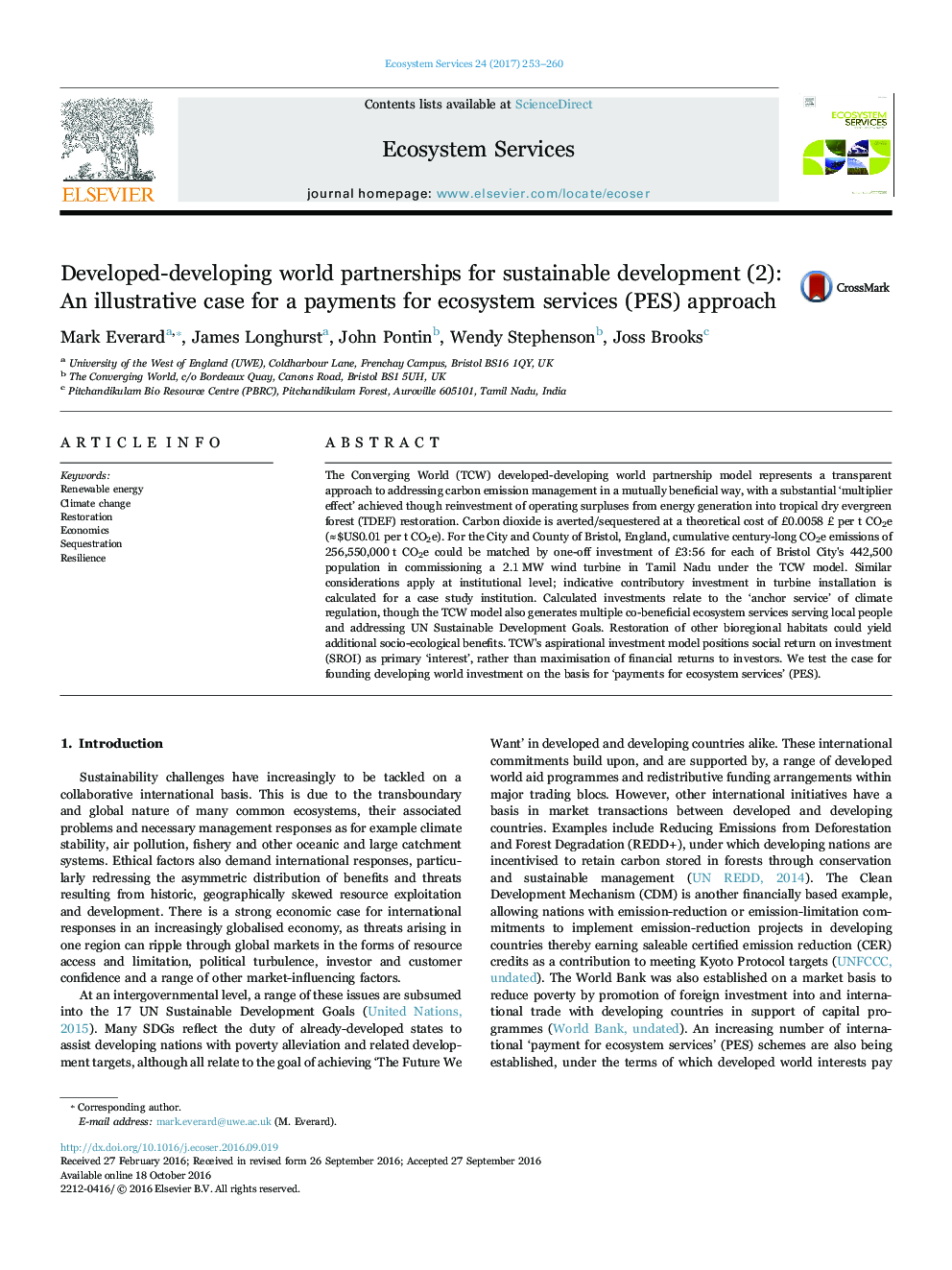| کد مقاله | کد نشریه | سال انتشار | مقاله انگلیسی | نسخه تمام متن |
|---|---|---|---|---|
| 6463642 | 1422536 | 2017 | 8 صفحه PDF | دانلود رایگان |
- A developed-developing world partnership offers mutual carbon management benefits.
- Reinvesting profits from renewable energy sales in forest restoration amplifies carbon abated.
- Investment by developed world partners in linked generation-restoration is cost-effective.
- Multiple service co-benefits from habitat restoration are significant, but require valuation.
- Sustainability is advanced by framing socio-ecological gains as 'interest', not private profit.
The Converging World (TCW) developed-developing world partnership model represents a transparent approach to addressing carbon emission management in a mutually beneficial way, with a substantial 'multiplier effect' achieved though reinvestment of operating surpluses from energy generation into tropical dry evergreen forest (TDEF) restoration. Carbon dioxide is averted/sequestered at a theoretical cost of £0.0058 £ per t CO2e (â$US0.01 per t CO2e). For the City and County of Bristol, England, cumulative century-long CO2e emissions of 256,550,000 t CO2e could be matched by one-off investment of £3:56 for each of Bristol City's 442,500 population in commissioning a 2.1 MW wind turbine in Tamil Nadu under the TCW model. Similar considerations apply at institutional level; indicative contributory investment in turbine installation is calculated for a case study institution. Calculated investments relate to the 'anchor service' of climate regulation, though the TCW model also generates multiple co-beneficial ecosystem services serving local people and addressing UN Sustainable Development Goals. Restoration of other bioregional habitats could yield additional socio-ecological benefits. TCW's aspirational investment model positions social return on investment (SROI) as primary 'interest', rather than maximisation of financial returns to investors. We test the case for founding developing world investment on the basis for 'payments for ecosystem services' (PES).
Journal: Ecosystem Services - Volume 24, April 2017, Pages 253-260
